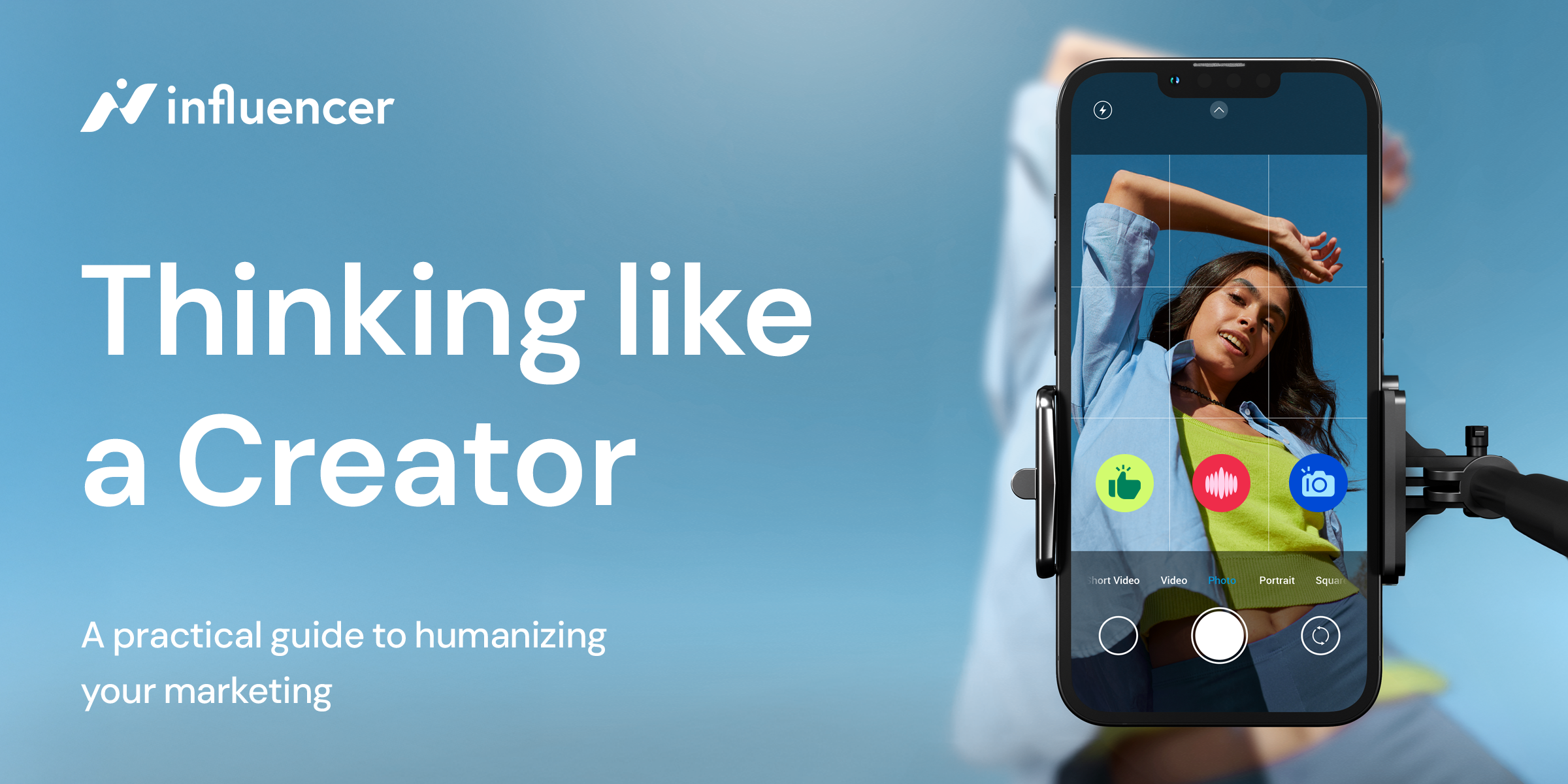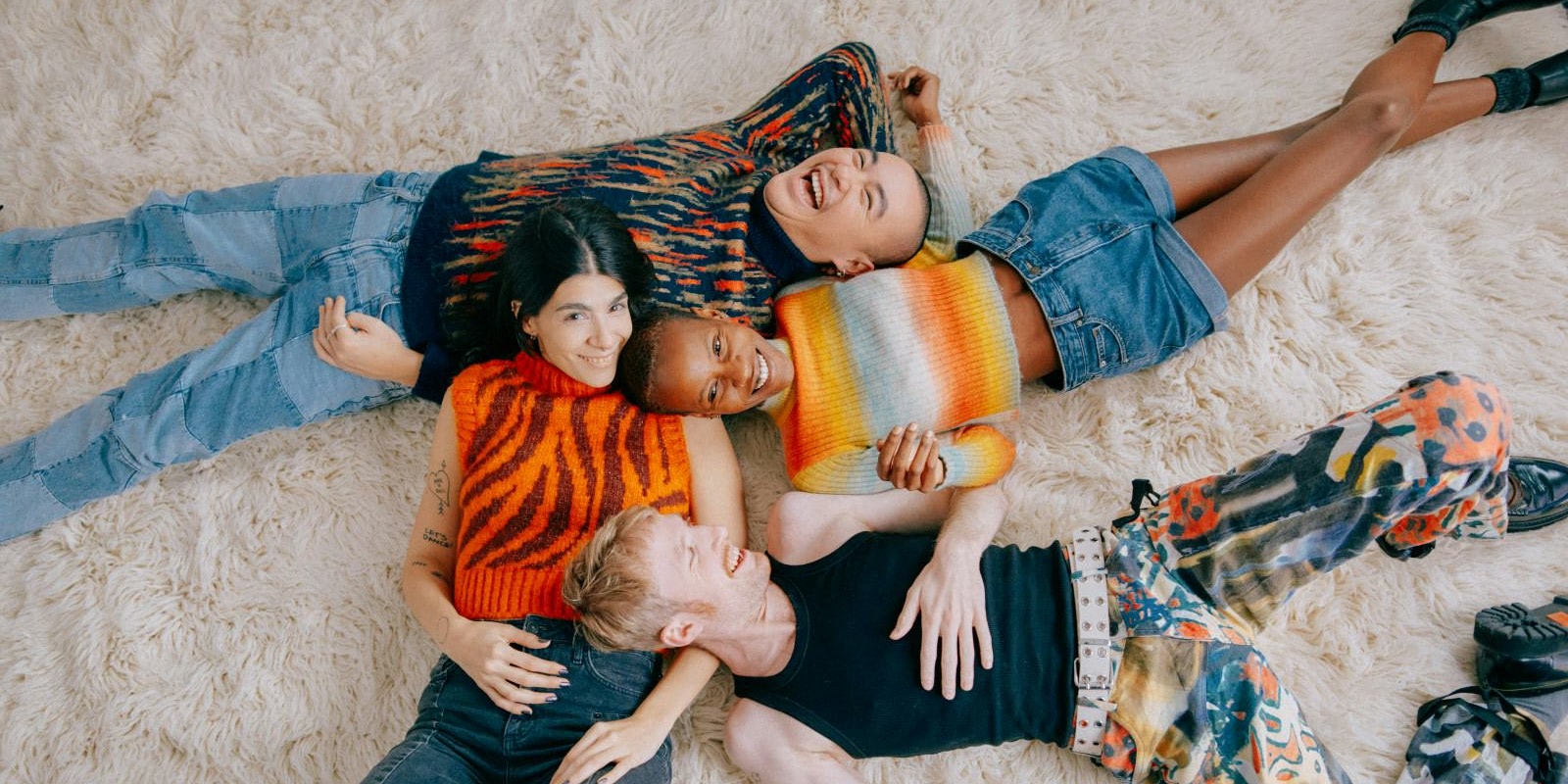
Influencer marketing looks set to level up in quality and scale in 2022
Influencer marketing is the ideal way to reach a spectrum of niche audiences, communicate brand values and drive long-term effectiveness as we enter 2022, according to John-Paul James, vice president of business development at influencer marketing platform Influencer.com
‘We’re seeing rapid progression and development in influencer marketing that is being embraced by advertisers,’ he said. ‘Our expectation is that there’s going to be a continued blur between creator, brand and platform driven by the ambition of influencers – but also the ambition of brands.’
James was speaking at Most Contagious Deconstructed on 7 December in London, an event in partnership with influencer marketing platform, Influencer.com and Contagious.
Contagious' 7 Takeaways For Marketers
Contagious’ editorial director, Alex Jenkins, and editor-at-large, Katrina Stirton Dodd, kicked off the event with seven takeaways for marketers from 2021, including the need for creative flexibility and the value in embracing traditionally uncomfortable topics.
On the latter, Stirton Dodd highlighted Canesten’s bid to tackle misinformation in Brazil with its Vagina Academy campaign, for which well-known creators delivered 28 unconventional interactive lessons on femcare. For example, body positive influencer Hana Khalil (@hanakhalil) gave lessons on what clothes to wear to take care of the vagina and the importance of condoms, and shared 20 facts about vaginas while doing her makeup.
‘People are over the “sell us a dream” phase of advertising,’ said Stirton Dodd. ‘This was a brilliant piece of marketing because the creators were able to capture the tone and vitality of the message; it didn’t feel like it was coming from a brand.’
Influencer's 10 Big Bets For 2022
Influencer.com’s James then delivered his 10 big bets on what is to come in the world of influencer marketing as we head into 2022. Or, as he put it, ‘insightful and inspiring considerations for brand leaders to reinforce or recalibrate [their] perception of what creative marketing is going to be.’
While the Covid-19 pandemic saw global marketing budgets slashed, James was confident that influencer marketing will rise in 2022. ‘People are now investing heavily amongst dedicated creative teams to fill this void, and there’s going to be a levelling up, in terms of quality but also scale.’
But he stressed that to succeed brands must be agile and able to adapt to trends, as well as cultural opportunities. ‘Optimising content and data in real time is key to making the most of what you have in the influencer space,’ he said, ‘it’s about developing systems not silos. Advertisers need to align with platforms that will give them a real-time overview of all [their] influencer work and incorporate it holistically.’
But it is the adoption of long-term partnerships between brands and creators with the same values that is most critical for success. ‘It will allow you to maximise your investment and ensure that you can do more with less,’ he said.
Why is influencer marketing effective and how can brands do better?
Later in the event, a panel that included Georgia Farey, communications and marketing lead at Chelsea Football Club, Tish MacDonald, head of business development at Influencer.com, and Becca Peel, senior strategist at Contagious, discussed: Why is influencer marketing effective? What brands are doing it well? How can marketers do it more successfully?
MacDonald argued influencer marketing works because they have built up a faithful and loyal audience over time. ‘It’s very much a peer-to-peer conversation,’ she said. ‘When the message comes from the brand, the audience doesn’t listen to it in the same way.’
The panel agreed that influencer marketing allows brands to communicate things in a way that resonates with their audiences. Peel said chocolate brand Maltesers’ recent use of creators in its campaign for maternal mental health was a perfect example. ‘You can’t be a brand saying those things,’ she said. ‘The message needs to come from the people who are experiencing it themselves.’
Farey agreed but also warned ‘there has to be an emotional connection between the brand and creator, that’s where I’ve been burned in the past. While someone might have the correct audience [...] if they don’t genuinely like your product or their values don’t align then they’re just going to produce a load of crap for you.’
The panelists ended the talk by sharing some final advice with the audience: be respectful of content creators - they’re the content creation masters, be experimental, and, finally, look at influencer marketing as a long-term strategy – it’s here to stay.
To find out more about Influencer’s 10 big bets for 2022, or if you have any questions about our strategy get in touch here.
More resources

New Creator Economy report urges brands to think like Creators - or risk being left behind.
Let’s work together

Let’s work together

Let’s work together

Let’s work together

Let’s work together

Let’s work together

Let’s work together

Let’s work together

Let’s work together

Let’s work together

Let’s work together

Let’s work together

Let’s work together

Let’s work together

Let’s work together

Let’s work together

Let’s work together

Let’s work together

Let’s work together

Let’s work together

Let’s work together

Let’s work together

Let’s work together

Let’s work together

Let’s work together

Let’s work together

Let’s work together

Let’s work together

Let’s work together

Let’s work together

Let’s work together

Let’s work together



.webp)
